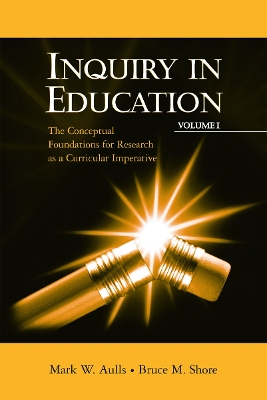Educational Psychology
1 total work
Why should inquiry—the engine for independent, curiosity- and interest-driven, life-long learning—be a curricular imperative, and its presence a criterion for excellent education? Is it possible to teach inquiry skills systematically and to engage learners in being inquirers across elementary, secondary, and post-secondary schooling?
To answer these urgent questions, this book
*pulls together more than four decades of expert opinion, quantitative research, and qualitative research on inquiry in different disciplines, school subjects, and levels of education; and
*presents a dozen different pedagogical, philosophical, and disciplinary traditions within which evidence and rationale are found for building learning and teaching experiences around inquiry-based curricula.
Inquiry in Education, Volume I: The Conceptual Foundations for Research as a Curricular Imperative is the first book to gather all these sources together, to build a cross-disciplinary case for inquiry as the central core of sound curriculum design, and to offer an organized interpretation of this large body of knowledge from a variety of perspectives and for different educational purposes. A companion volume, Shore, Aulls, & Delcourt, Eds., Inquiry in Education, Volume II: Overcoming Barriers to Successful Implementation, focuses on a corollary question: If inquiry is such a good thing, why is it not universal practice? What barriers stand in the way, and how can teachers overcome them?
Inquiry in Education, Volume I is intended for scholars, faculty, and students of education, and for practitioners at all levels of schooling who support inquiry-oriented reforms in education and who want to learn more about how to use inquiry in their own practice.
